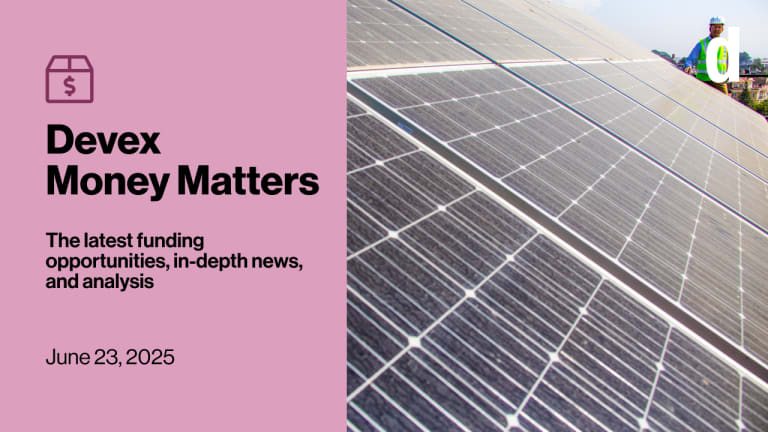Although best known as a lender and financier to developing countries, the World Bank group also spends more than $1 billion a year making sure that its own offices and operations run smoothly, which can offer opportunities to contractors.
Like any large business — the bank has a global staff of more than 15,000 people and 150 offices around the world — it has a long list of goods and services to procure, including office furniture, health insurance for bank employees, construction and consulting services.
To meet those needs, the development finance institution hires a range of consultants and contractors whose contracts are handled through a special corporate procurement unit. This work is separate from the institution’s procurement team working to support borrower countries and businesses procuring goods and services for projects financed by World Bank loans.
This story is forDevex Promembers
Unlock this story now with a 15-day free trial of Devex Pro.
With a Devex Pro subscription you'll get access to deeper analysis and exclusive insights from our reporters and analysts.
Start my free trialRequest a group subscription




